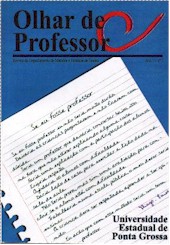Educação física escolar: uma leitura na concepção emergente do desenvolvimento humano
Main Article Content
Abstract
O objetivo principal neste trabalho é focalizar alguns aspectos da Educação Física Escolar utilizando como referencial teórico uma das teorias que tratam do Desenvolvimento Humano, a Teoria Ecológica de Urie Bronfenbrenner, interpretada e discutida pelo Profº Rui Jornada Krebs. Primeiramente evidencia-se alguns questionamentos que permeiam a Educação Física Escolar, os quais fazem parte da realidade que vivencia-se e das preocupações que se têm. Em seguida, aborda-se sobre o Desenvolvimento Humano, sua relação com o comportamento e seus principais princípios numa perspectiva ecológica. Dentre as teorias emergentes que tratam do Desenvolvimento Humano, optou-se pela Teoria Ecológica de Urie Bronfenbrenner para discutir algumas questões que permeiam a Educação Física Escolar. Dessa forma, situa-se a escola enquanto um microssistema, a aula de Educação Física como atividade molar, os diferentes papéis que são vivenciados pelas pessoas, principalmente o aluno, no ambiente da escola, assim como, as estruturas interpessoais que nela são estabelecidas. Algumas considerações são colocadas no término do trabalho não no sentido de concluir, mas de instigar outros questionamentos que envolvem o tema em questão e que possam vir a colaborar para seu enriquecimento.
Downloads
Article Details
Authors who publish in this journal agree with the following terms:
a) Authors keep the copyrights and concede the right of its first publication to the magazine. The work piece must be simultaneously licensed on the Creative Commons Attribution License which allows the paper sharing, and preserves both the author identity and the right of first publication to this magazine.
b) Authors are authorized to assume additional contracts separately, to not-exclusively distribution of the paper version published in this magazine (e.g.: publish in institutional repository or as a book chapter), with the author identity recognition and its first publication in this magazine.
c) Authors are permitted and stimulated to publish and distribute their papers online (e.g.: in institutional repository or on their personal webpage), considering it can generate productive alterations, as well as increase the impact and the quotations of the published paper.
d) This journal provides public access to all its content, as this allows a greater visibility and reach of published articles and reviews. For more information on this approach, visit the Public Knowledge Project, a project that developed this system to improve the academic and public quality of the research, distributing OJS as well as other software to support the publication system of public access to academic sources.
e) The names and e-mail addresses on this site will be used exclusively for the purposes of the journal and are not available for other purposes.

This work is licensed under a Creative Commons Attribution 4.0 International License.

